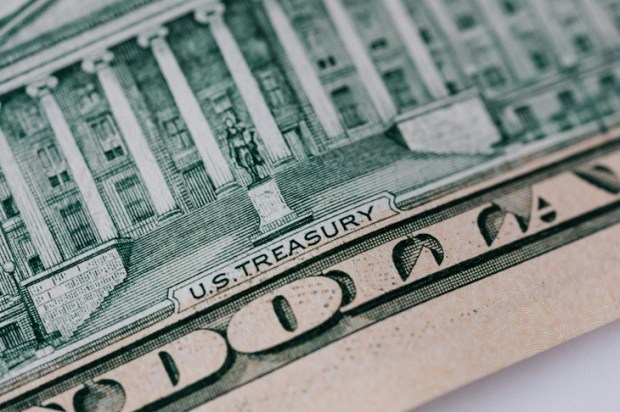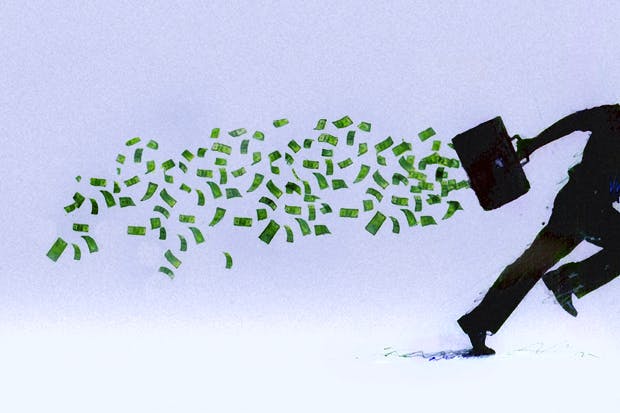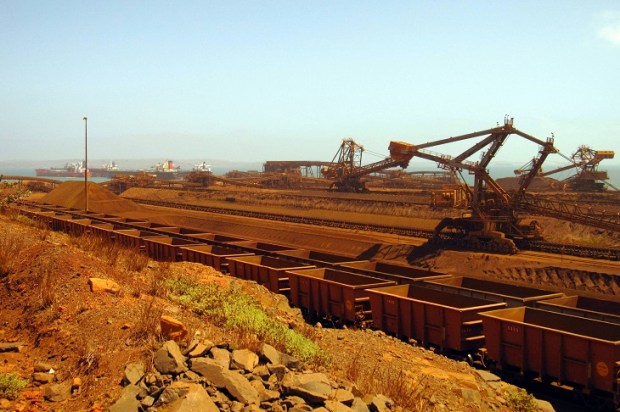Many mistook the Chinese Communist Party’s (CCP) tightening of what many believe to be an iron grip on Hong Kong in recent years as a testament to some sort of grandiose tussle of philosophies or ideas.
Perhaps the special administrative region’s long-held civil liberties and democratic processes just became too ideologically unpalatable for the increasingly autocratic tendencies of incumbent Chinese President Xi Jinping.
But of course, as a wise man once said, whenever someone tells you it’s not about the money but about the principle of the thing, it’s about the money.
I’ve been swayed by the notion that those who wield the omnipotent power of high standing within the Chinese politburo don’t really care about nor are threatened by concepts like democracy, classical liberalism, or liberty as much as they’re purported to be.
Spectrums regarding such ideals aren’t regarded as particularly consequential or meaningful outside Western countries. After all, it is really only those in the West that can afford to spend hours entertaining people deliberating over how many genders there are or about the evils of ambiguous ideas like socialism or capitalism. In most of the world however, including China, politics is the preserve of pragmatic concerns.
What the CCP is untenably threatened by is Chinese money escaping Chinese borders.
Between 1980 to 2016, it’s estimated that the third world lost approximately $16.3 trillion USD in capital flight, the Chinese share of which constitutes $4.6 trillion mostly exiting the mainland via Hong Kong.
In 2016, reports indicated that China’s central bank – The People’s Bank of China (PBOC) – had depleted $800 billion of its foreign exchange reserves trying to counteract the effects of capital flight.
This concern is nothing new to some degree.
The structure of the Chinese economy heavily relies on retaining capital within its borders to sustain elevated levels of domestic investment, fund state-owned enterprises and maintain the competitiveness of its industries on a global stage.
Unlike the United States, China does not enjoy the luxury of its currency – the yuan – being employed globally as the world’s reserve currency. This means that it is more sensitive to capital flight conducive to the depreciation of the yuan and thus relies on strict capital controls to prevent money from flowing out too quickly.
Conversely, the US attracts foreign investment and capital inflows purely because its currency – the US dollar (USD) – is a globally mandated legal tender which means nations must buy USD to do business internationally.
This is why China has no choice but to enforce legislation to stop capital flight on the part of its institutions, high-net-worth individuals and even everyday citizens. For example, for Chinese residents, there is a USD $50,000 annual limit on exchange transfers of Yuan for foreign currencies.
State-owned enterprises are also prohibited from purchasing foreign real estate valued at $1 billion or more.
Hong Kong plays a pivotal role in all of this for a few main reasons. Its distinct financial regulations have made it the nexus of both capital inflows and outflows to and from mainland China for decades now.
On the one hand, Hong Kong’s one-country, two-systems mode of governance has allowed Chinese companies to receive the outside investment they require feasibly.
Investors globally are hesitant to place their capital directly into China. Would you freely invest your money in a jurisdiction run by an authoritarian regime that has a history of expropriating assets without a care in the world?
Hong Kong helps China circumvent this problem for investors because foreign entities can invest their money in the mainland without it ever technically leaving Hong Kong. Hence why the primary listing for major public Chinese companies is the Hong Kong Stock Exchange.
However, the caveat to this rule is that capital can exit the mainland through Hong Kong in the same fashion as it can enter.
As China’s economic miracle came to fruition and the nation started to boom, this didn’t matter a great deal given that capital inflows always seemed to exceed outflows.
But the picture isn’t so clear anymore. China is dealing with severe headwinds that most economists don’t deem to be fleeting but rather structural.
Its once burgeoning economy characterised by rapid growth that peaked at an astonishing 18.7 per cent in the first quarter of 2021 is now dwindling in the face of an inexorable middle-income trap – when a country’s growth stalls before it can transition to high-income status.
Its over-leveraged real estate market finally gave in with the collapse of its largest developer Evergrande Group and the seemingly imminent liquidation of its second-largest Country Garden.
President Xi also continues to create an environment that doesn’t exactly constitute what you’d call a favourable investment climate by implementing increasingly anti-speculative policies, making overt efforts to concentrate his own power within the politburo and placing repressive measures on the nation’s private sector elite.
As a result, China’s rich are starting to flee and are looking for ways to take their gargantuan fortunes with them, a lethal prospect for a government already worried about propping up a struggling economy.
According to a rich list compiled by research group Hurun, the number of billionaires in China has fallen by over a third over the past three years.
If this trend persists, capital outflows from mainland China through Hong Kong will exceed its inflows, spelling the end of Hong Kong as a profitable financial hub for Beijing.
Hence why many allege the controversial extradition bill proposed by former Hong Kong Chief Executive Carrie Lam in 2019 was part of a last-ditch effort to stop capital leakage given that it would have allowed mainland Chinese authorities to freeze and confiscate assets in Hong Kong.
Thus, unfortunately, it is likely the end of an era for the Pearl of Orient as the Middle Kingdom ventures out into its own uncharted territory.

























